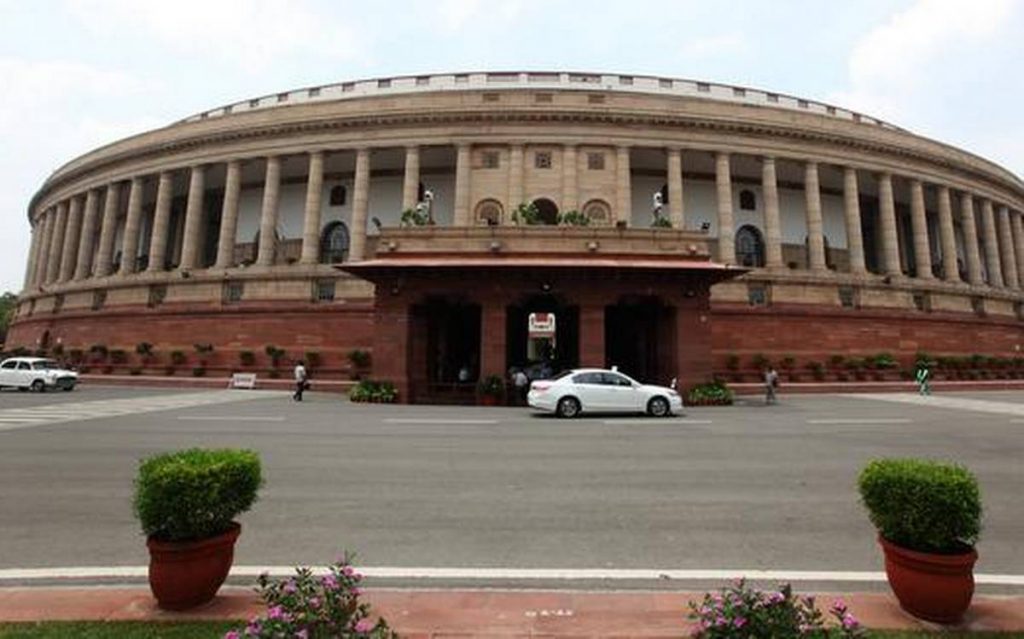Rehan Khan
The Lok Sabha passed the Waqf (Amendment) Bill, 2025, in the early hours of April 3, following a rigorous 12-hour discussion. The Bill, introduced by Union Minister Kiren Rijiju on April 2, was passed with 288 Members of Parliament (MPs) voting in favor and 232 opposing it.
During the debate, Kiren Rijiju emphasized that the Bill does not infringe upon the religious rights of Muslims but strictly concerns the management of waqf properties.
“If we had not come up with this legislation, even the Parliament building would have been claimed as waqf,” he remarked.
Union Home Minister Amit Shah countered claims that the Bill interferes with religious affairs.
“I would like to tell Muslims in the country that not even one non-Muslim will come into your waqf,” he stated.
BJP MP Tejasvi Surya criticized the Congress, stating that the Bill aims to correct a “constitutional fraud” imposed on the country by the party.
On the opposition front, Congress MP Gaurav Gogoi condemned the Bill, calling it an “attack on the basic structure of the Constitution.” Similarly, AITC MP Kalyan Banerjee argued that the legislation violates Article 26 of the Constitution, which guarantees religious groups the right to manage their affairs.
Congress MP KC Venugopal accused the BJP of using the Bill to target religious minorities.
“The world is watching as you try to divide this country for political benefit,” he asserted.
RSP MP NK Premachandran raised concerns about the inclusion of non-Muslims in waqf boards.
“You have made non-Muslim members mandatory on the waqf board. Will you say that for devaswom boards of temples?” he questioned.
Independent MP from Jammu and Kashmir, Abdul Rashid Sheikh, remarked on the numerical advantage enjoyed by the ruling party.
“We all know this Bill will be passed because they have the majority. I want to tell Muslims of this country that this is a numbers game for them, and you are stuck in between,” he stated.
Meanwhile, Kerala Congress MP Advocate K Francis George opposed claims that the Bill would help resolve the ongoing Munambam-waqf dispute in Kerala.
“Munambam dispute can be resolved by making ambiguous provisions of the Act unambiguous, and it can be done without affecting the fundamental rights of Muslims,” he clarified.
AIMIM MP Asaduddin Owaisi vehemently opposed the Bill, going so far as to tear a copy of it in protest.
“When you say waqf council and board are religion-neutral, you can nominate your pawns. What kind of mockery of democracy is this?” he asked.
The Waqf (Amendment) Bill, 2025, which aims to amend the Waqf Act, 1995, introduces significant changes in the regulation of waqf properties. The Act was originally enacted to govern the administration of waqf properties, including the functioning of the Waqf Council, State Waqf Boards, and Waqf Tribunals.
Some of the major amendments proposed in the Bill include:
- Renaming the Act: The Bill renames the Waqf Act, 1995, to the Unified Waqf Management, Empowerment, Efficiency, and Development Act to reflect its broader objective of improving waqf management.
- Defining Waqf Creation: The Bill mandates that only a person practicing Islam for at least five years may declare a waqf and must own the property being declared. It eliminates waqf by user, which previously allowed properties to be deemed waqf based on prolonged religious use.
- Waqf Board’s Powers: While the previous Act empowered the Waqf Board to determine if a property is waqf, the Bill removes this provision.
- Composition of the Waqf Council: Under the existing Act, all Council members had to be Muslims, with at least two women. The Bill introduces mandatory inclusion of at least two non-Muslim members. Muslim representatives, scholars in Islamic law, and chairpersons of Waqf Boards will remain on the Council, with two among them being women.
- Central Government’s Role: The Bill grants the Central government the power to regulate waqf registration, publication of accounts, and oversee the proceedings of Waqf Boards. It also enables the Central government to audit waqf accounts through the Comptroller and Auditor General (CAG) or a designated officer.
- Separate Waqf Boards: While the Act allowed separate Waqf Boards for Sunni and Shia sects if the Shia waqf constituted over 15% of waqf properties or income in a State, the Bill extends this provision to include the Aghakhani and Bohra sects.
- Appeals Against Waqf Tribunal Orders: The existing Act deemed the decisions of the Waqf Tribunal final, prohibiting appeals in courts. The Bill now permits appeals to the High Court within 90 days of a Tribunal’s ruling.
The Bill was first introduced in August 2024 and later referred to a Joint Parliamentary Committee (JPC), which suggested certain amendments before its reintroduction in the House. Following its passage in the Lok Sabha, the Bill will now move to the Rajya Sabha for consideration.
Instagram: Click here
LinkedIn: Click here
For Collaboration and Business: info.desikaanoon@gmail.com

